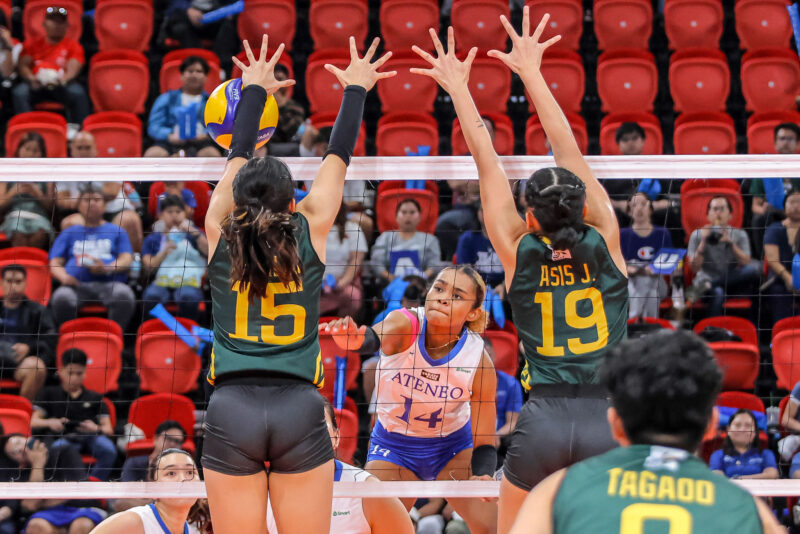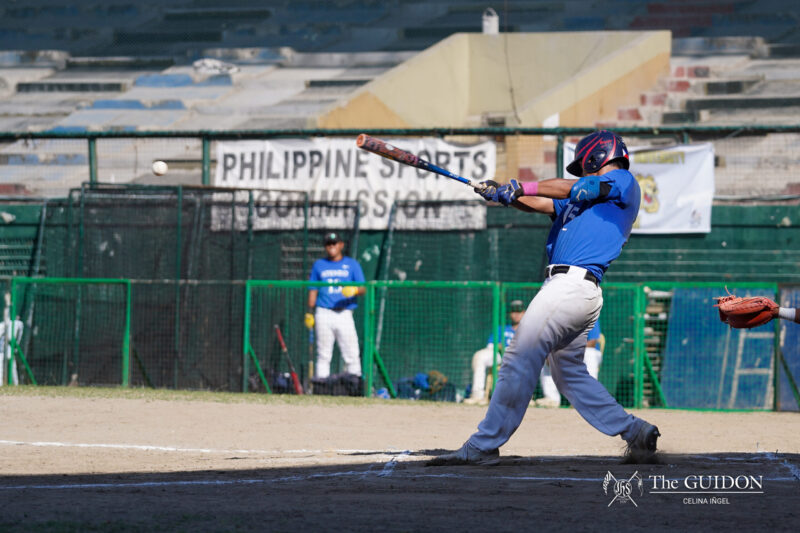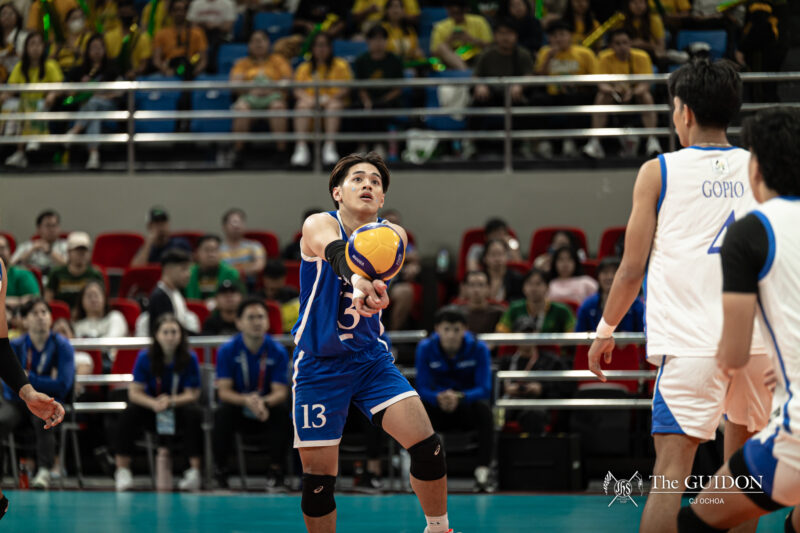IN RESPONSE to the Ateneo Student Judicial Court’s (SJC) declaratory relief, the Ateneo Commission on Elections (Comelec) has issued a memorandum stating that a separate special elections for the Sanggunian president and chairpersons will not be held.
The SJC declaration, promulgated on July 6, “conditionally allowed” the election of the president and the School Board (SB) chairpersons for the School of Humanities, the School of Science and Engineering, and the School of Social Sciences.
The said positions, along with 24 others in the Sanggunian Top 44, did not reach their respective quotas in the Sanggunian General Elections last February and have since been vacant.
According to the memorandum, the Comelec has decided that while filling up the empty positions is a priority of the Sanggunian, it “sees no critical need” to conduct a separate special elections.
This decision was made in consultation with the Office of Student Activities, the SJC and the Sanggunian itself.
The memorandum also stated that delays or shifts in the elections schedule, should there be two special elections, could not be accommodated by the deadlines for elections that are set in the constitution.
Based on the decision, a second set of special elections would not only be costly and impractical, it could also cause “voter fatigue and confusion.”
Construing clauses
While the 2005 Constitution of the Undergraduate Students of the Ateneo states how to address the vacant positions in the Sanggunian, the exemption for the seats of the president and chairpersons still remains a gray area.
According to Article XV, Section 4(a), “vacancies that occur in the Central Board and SB before the election of the Freshman Officers, with the exception of the positions of the Sanggunian President and School Board Chairpersons, shall be filled via special elections to be held simultaneously with the Freshman Year Officer Elections.”
The SJC was prompted to issue an interpretation of the said provision after John Gokongwei School of Management Chair Alex Tanjangco filed a petition on June 29 asking for a declaratory relief.
“If there was a chance to have a president and [SB chairpersons], why not take it?” asked Tanjangco in an interview with The GUIDON. “There’s nothing to lose. That’s the only reason I [filed the petition] in the first place.”
Tanjangco explained that she brought up the idea of reviewing the constitution, particularly Article XV, Section 4(a), during a joint session with the CB, SB and all other Sanggunian sectors on June 27.
The SJC said that a review would not be possible without a formal request for a declaratory relief. Tanjangco then drafted a petition which offered three explanations for the said provision.
First, that “the positions of president and chairperson are not allowed to run during the special elections.”
Second, that “the positions of president and chairperson are not required to be included in the special elections, however are allowed to be included.”
Third, that “the positions of president and chairperson are not allowed to take part in the special elections, however are allowed to take part in a separate election held on the same dates.”
The court allowed special elections to be held for the said positions, but with the following conditions: It should be set on a date separate from the 2014 Sanggunian Freshmen and Special Elections, and it should be held before the 2015 Sanggunian General Elections.
According to the SJC declaration, the court viewed the “silence of the constitution” on the course of action to take for the vacant positions of the president and the chairpersons as an intention to respect the electoral mandate of the student body.
However, the SJC believes that the mandate “would not be breached” if the said positions were opened once again for elections.
The spirit of the law
“Dangerous” is how Christian Union for Socialist and Democratic Advancement (Crusada) Premier Abbo Hernandez described Tanjangco’s petition.
Instead of being a proper request for a declaratory relief, the petition was an argument that the constitution was vague and ought to be interpreted according to a certain agenda, according to Hernandez.
“If a petitioner submits three random, three very different interpretations, then it means it’s not really a justifiable interpretation because you’re just trying to give them options: ‘If you can’t interpret it this way to favor me, there’s another way to favor me. If you still can’t interpret it that way, there’s another way to favor me also,’” Hernandez said.
“To put it blatantly, these are loopholes,” said Ignatian Initiative for Transformative Empowerment (Ignite) President Luigi Del Rosario. “For me, these are over-interpretations. The first interpretation is what we have always used [in past cases]. Yearly, in special elections, we don’t allow the voting of president and chairperson.”
“A special election, in spirit, is supposed to be an election other than the general election,” Hernandez explained. “So basically what the SJC just said is, you can’t put this in the special election with the freshmen, but you can have [another round of] special elections right before the [original] special elections, which is still a special election to begin with.”
The SJC consistently refused to comment on these criticisms when approached by The GUIDON. Instead, they claimed that the document of their decision already spoke for itself and that they are constitutionally not allowed to disclose minutes of their deliberations.
Tanjangco said she heard about the negative feedback on the petition, specifically on the interpretations she listed down.
“I gave my own opinions on the possible interpretations because I thought it would be better to be as specific as possible. However, I didn’t think [the SJC] would come up with a result with those limited options. I assumed they would add their own,” she said.
Despite the criticism, she said she stands by her petition, as she submitted it with “good intentions.”
The case against
The Loyola Schools community has not favored the court’s ruling.
Del Rosario said that he did not like how impractical the decision was. “[The decision gives] us another campaign season to prepare for which we did not see coming beforehand,” he said. He even believes that the election would have failed because of voter fatigue.
In terms of finance, Del Rosario thinks the money to be spent on another election would be better used by student organizations or for other Sanggunian projects.
Steps have also been taken by members of the community to work against the court’s decision.
Crusada, the only accredited political party in the Ateneo, filed a motion for reconsideration on the evening of July 8. The attempt was spearheaded by Crusada Solicitor General Miko Alazas.
The party’s arguments come in two parts. The first is a legal argument about how the petition was not a legitimate request for a declaratory relief. The second part of the argument, which Alazas considers the heart of it, is that the constitution is not actually as vague as Tanjangco claimed, and has an intention opposed to what the court had ruled.
For the first part, he explained that a declaratory relief is not some request to interpret a constitution that anyone can just ask for. Instead, a court grants declaratory relief when between two parties in conflict, rights are in breach. To petition for a declaratory relief, the petitioner must be able to point to a specific right in breach in order for the court to grant one.
The second part of the argument cited verba legis–“plain-meaning rule” in English, meaning that the most direct interpretation is the intended one. The way the principle applies to this situation, Alazas argued, is that the explicit exception it makes should be considered to hold across time. Therefore, it should not be justifiable to try to go around the exception by saying that it no longer applies at some different date.
In a decision released on July 15, the SJC dismissed the motion for reconsideration because of a 3-3 voting deadlock among the magistrates. Opinions of the magistrates who were split in accepting or rejecting the motion for reconsideration were published with the decision.
The court, however, unanimously ruled for Crusada’s first argument to be disregarded on the grounds that the court’s definition of a declaratory relief differed from the Supreme Court of the Philippines’ cited as precedence by Crusada. The court cites the SJC Rules of Court 2014, which reads, “Anyone interested under any act or policy of a Sanggunian official or entity, or whose rights are effected [sic] by a resolution or policy may [petition for declaratory relief.]”
In response to Crusada’s second argument, the SJC emphasized that the declaration was not meant to be precedent in any case of failure of elections.
It is only the “extraordinary nature” of last February’s failure of elections—which left the Sanggunian’s Top Four positions vacant— that led to the SJC’s decision. It is only in that specific context wherein the ruling to allow a special elections for the president and chairpersons takes precedence.
It was only in these extraordinary circumstances where the ruling to allow the Comelec discretion to set new special elections takes precedence.
It is also on Crusada’s second argument that the court’s magistrates have contesting opinions. The three against the motion are Chief Magistrate Lorenzo Pepito, and Magistrates Magdalena Pineda and Cristine Villaruel.
They argue that the writers of the constitution were unable to provide for the present situation and relied on mitigating controls that no longer applied. “Returning to the current context of the Sanggunian, circumstances have it that these mitigating controls…are inoperative provided the recent vacancies of both the highest position and the second-highest position in both the Central Board and the School Boards.”
Furthermore, they state that “the Court welcomed the controls that allow for the filing of the vacant President and Chairperson positions through the holding of another Special Elections under the discretion of COMELEC.”
On the other hand, the three Magistrates in favor of the motion were Danielle Gaite, Paolo Sta. Isabel and Aldwin Segismundo. Their opinion begins, however, with an argument against a part of Crusada’s petition.
They state that the provisions of Article XV, Section 4(a) are not automatically subjected to the plain-meaning rule and that Crusada’s own understanding of the article is itself an interpretation, deserving no more specially accorded consideration than Tanjangco’s.
The three agree, however, that “the silence of the constitution calls one to err on the side of caution” and that “it would be best to interpret all controversies in a manner that is closest to the spirit of the law.”
They explain that “the writers of the Constitution indeed considered [the present circumstances] by embedding succession responsibilities [in an acting capacity] in the officers who are next in line, namely, the vice president and the secretary-treasurer [sic].”
The three emphasize that while the Sanggunian is struggling with vacancies in the top positions, “it is in no way permanently incapacitated” as it is empowered by the constitution to create units that will carry out its functions.
The three magistrates then conclude that “while the plain-meaning rule is not the only interpretation that exists for the provision,” it is also the closest to the spirit of the constitution.
The leadership dilemma
The driving force behind all these events has been the need to fill vacant positions at the top of the Sanggunian. But what exactly does this situation mean for the student government and its ability to function?
According to Del Rosario, the Sanggunian was off to a rocky start this summer, but they have “started to gain ground already… I can’t deny the fact that [it’s working]… I don’t see the need of electing chairpersons. However, I see the need of electing someone who will take charge.”
Asked about how the student body might elect someone who could assume leadership, he is in favor of electing a vice president to take care of presidential responsibilities, especially in spearheading projects.
Hernandez shared the same sentiments. “When the [positions in question] are gone, they don’t really harm the representation of students assuming you elect everyone else.” He argued that these elected students, especially those in the higher positions, then, have the responsibility of representing the students and spearheading the projects instead.
According to Hernandez, the Sanggunian members should have been ready to function without the top positions in the first place. “[Those that managed to get elected] should have come in with a very real fear that a [top level position] may not get elected…It might be really hard, but people should have been ready to take on that responsibility.”
In a separate interview, Tanjangco said that it is more difficult for the Sanggunian to work without someone to take charge, make key decisions, and set the direction for the specific schools and the Sanggunian in general.
“The Sanggunian can function without [the president and the chairpersons], but it will function a lot better with them,” she said.
Updated: July 17, 4:13 PM






